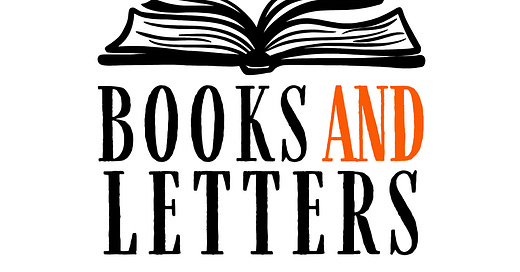On January 1st, Rumbling Toward Heaven will undergo a name change. It will soon be called Books and Letters.
Come writers and critics
Who prophesize with your pen
And keep your eyes wide
The chance won't come again… - Bob Dylan
It is perhaps one of the few uncontested beliefs that books and letters have been the bedrock of flourishing civilizations and thriving cultures. Certainly, that has been the case for the West.
“Until lately, the West has regarded it as self-evident that the road to education lay through great books,” wrote the editors of The Great Books series published in 1952. Additionally, “The tradition of the West is embodied in the Great Conversation that began in the dawn of history and that continues to the present day.”
Books and letters informed Medieval Scholasticism, shaped Renaissance humanism, inspired the Reformation, and drove the Enlightenment.
Those who have been involved in this great literary conversation are what Richard Weaver called language citizens, or what Percy Bysshe Shelley called the unacknowledged legislators of the world. In the broadest sense of the expression, we are talking about The Republic of Letters, an intellectual community that has spanned centuries and transcended geographical borders, connecting poets, historians, linguists, philosophers, and theologians in a network of correspondence and mutual refinement.1
Alongside these mentioned, I believe ideas indeed shape culture, and that books and letters are the tools through which these ideas are forged and preserved. They are indispensable for learning, for dialogue, and for a shared pursuit of truth, beauty, and goodness. In other words, since books and letters are the cornerstone of civilization and culture, it follows they are also essential for human flourishing.
Today, our culture is fragmented, transient, and untethered from this great conversation, such that rational public discourse is nearly impossible. Because we lack a realized sensus communis there is an urgent need to recover this legacy. To rekindle any sense of thoughtful engagement in an age that is dominated by fleeting trends and digital noise will be no small task, but it is one worth pursuing.
Books and Letters will be my attempt to participate in this noble tradition and do my part to help recovery this legacy. In my estimation, books are not merely to be read but to be engaged with, and letters—whether actual or figurative—should be written to converse with the past, critique the present, and anticipate the future.
Books and Letters explores the fullness of what it means to live as a steward of words in this modern world. Whether it is grappling with the works of G. K. Chesterton, C. S. Lewis, or Josef Pieper, reflecting on the enduring relevance of Greek philosophers and the Church Fathers, or simply savoring the tactile joy of a well-loved book, my constant endeavor will be to lead my readers to think deeply, communicate clearly, and live wisely.
Welcome to Books and Letters!
Allow me to invite you to join this great conversation; and if you find balm for your soul, light for your path, or help with your intellectual or artistic pursuits, please consider supporting this work by sharing it with others and becoming a paid subscriber.
In tomorrow’s post, I will explain why I previously called it Rumbling Toward Heaven and disclose my reasons for making the change to this publication’s name.
I’m using the expression The Republic of Letters to describe something more elusive than the particular intellectual communities of the late 17th and 18th centuries in Europe and the Americas. I’m using the term loosely, to describe men of letters who engaged in the great conversation throughout all ages and epochs.





